
Let us declare what is obvious: red-tagging is not and will never be a part of democracy.
Over the years, the Philippine state has weaponized labels like “communist” and “terrorist” to silence dissent and the opposition. This has led to harassment, arrests, and gruesome killings of journalists, political activists, and other critics of the ruling government. These acts of tyranny have been entrenched into the people’s memory, ironically compelling Filipinos to fear a state that promised to resolve crimes and terrorism rather commit crimes and terrorism itself.
Even though nothing new, red-tagging rose to new heights during the Duterte regime. In 2018, the National Task Force to End Local Communist Armed Conflict (NTF-ELCAC) was instituted, which claimed to quell the communist insurgency while adjusting its self-imposed deadline every year. Although saying that it is promoting peace, red-tagging is a government’s official counterinsurgency policy. Headed by the President himself, the NTF-ELCAC is composed of former military and current civilian officials who, under the pretext of preserving peace and order, were tasked to shrink spaces for peaceful activism in the Philippines and exacerbate the conditions for armed conflict with revolutionary groups.
As we begin yet another presidential term, national security adviser Clarita Carlos promised the end of red-tagging under the new Marcos administration—but it did not.
Red-Tagging is Not a Part of Democracy
Red-tagging is undeniably a state-sanctioned policy. Justice Secretary Jesus Crispin “Boying” Remulla recently stated, “Red-Tagging is a part of democracy.” He distorts the definition of democracy, claiming that the use of state coercion is somehow democratic, and justifying the government’s use of violence against its own citizens. In doing so, he proves that the true terrorists are not the activists he red-tags, but the state that continues to terrorize its people to prevent dissent to anti-democratic policies.
He added that “If a person can dish out criticism, they should be able to take criticism, especially if they are supporting those promoting the death of our people. That for me is probably the essence of democracy,” while ironically speaking before the United Nations Human Rights Committee meeting in Geneva. But red-tagging is not criticism, it is a threat dished out to enable state terrorism.
However, this was not the first time Remulla was put into the spotlight due to matters of red-tagging. Back in March, along with former Sen. Panfilo Lacson, they were under public scrutiny for accusing student activists of being “trained” by the National Democratic Front (NDF) to infiltrate budding democratic campaigns to support Leni Robredo, his boss’s primary opponent in the May elections. Similarly, Remulla was in the middle of further controversy last September 2021 for the role he took in the constant attacks on academic freedom. Even though it was several days past its deadline, he blatantly inhibited the passing of the institutionalization of the UP-DND Accord which restricted military and police presence inside the university.
For someone who is supposed to be the country’s Secretary of Justice, this, along with previous cases, puts Remulla’s judgment into question.
Tyranny in Democracy’s clothing
The 1987 Constitution ensures the right to have and express any political views without fear of arrest or, much less, death. Red-tagging sets this aside, calling anyone that believes in “radical ideas” a terrorist. These “radical” ideas – like the need to address poverty and the belief in human rights – are seen as threats to the state, and thus people that believe them must be stopped.
Even under the now-repealed Anti-Subversion Law, adhering to an organization’s principles is not enough; one had to be directly involved in unlawful operations. But in red-tagging, this is foregone entirely, and anyone – with any degree of participation – is treated like an armed combatant, thus justifying everything they want to do.
In an attempt to pursue their goal of vilifying the CPP-NPA-NDF as terrorist groups, the DOJ filed a petition in 2018 seeking to declare the activist groups as such – only to no success. The red-tagged Judge Marlo Magdoza-Malagar junked the petition last September, citing that the groups’ activities cannot be prescribed as acts of terrorism under the Human Security Act of 2007. She emphasized in her ruling, “Armed struggle is only a means to achieve the CPP’s purpose; it is not the purpose of the creation of the CPP” which makes them no terrorists.
Remulla’s sentiments towards red-tagging, however, presents itself as tyranny disguised as democracy. It shies away from his idea of “critiquing the critics,” while also welcoming an open violation of human rights and a license to kill. Remulla and his boss, Marcos Jr., may distort red-tagging towards their agenda but it only shows the realities of their tyranny.
Samaritans-Turned-Criminals
For the state, the Reds are not just those who take up arms. Teachers, community volunteers, peasants, labor unionists, human rights workers, lawyers, and journalists are red-tagged. The state is willing to go to any length to silence their critics through force and intimidation.
This can be seen, for example, in the government’s attacks on Kilusang Mayo Uno International Officer Kara Taggaoa and PASODA-PISTON president Larry Valbuena – both longtime victims of red-tagging. On October 10, police in Quezon City detained the two labor activists as they were leaving court after being arraigned on trumped-up charges of robbery. They were arrested in connection with a fabricated Direct Assault case. Red-tagging and these fabricated cases go hand-in-hand to prevent critics from criticizing the regime and spreading their pro-people calls.
Rather than being a part of democracy, red-tagging is an instant trial by publicity. It sets aside legal procedure, reduces victims to false labels, and treats critics like criminals. This is far beyond Remulla’s idea of “critiquing the critics” – as we have seen it has led to an unprecedented number of unreasonable arrests and deaths.
Sadly, the country has produced administrations that have resorted to fascism to stifle critics to varying degrees. Not only have they failed to detach ourselves from our bloody past, but they have taken part in it to mask their shortcomings by painting its critics red. This also highlights the need to resist the state’s red-tagging propaganda, ally with the broad masses to reject public displays of tyranny, and to ensure that fascists like these are removed from power. Condemning political activists as tyrants and seekers of violence must come to an end, as actual revolutionaries are the ones that espouse democratic ideals – not red-taggers like Remulla. As Judge Malagar mentions in her ruling, violence is just their means but the democratic interests of the people is the end; unlike the state whose means and ends are state-sanctioned violence.
With a serial red-tagger like Boying Remulla at the helm, as long as the government treats red-tagging as part of democracy, we live in tyranny and the Department of Justice remains to be a department of injustice.
Featured image courtesy of Gerard Carreon

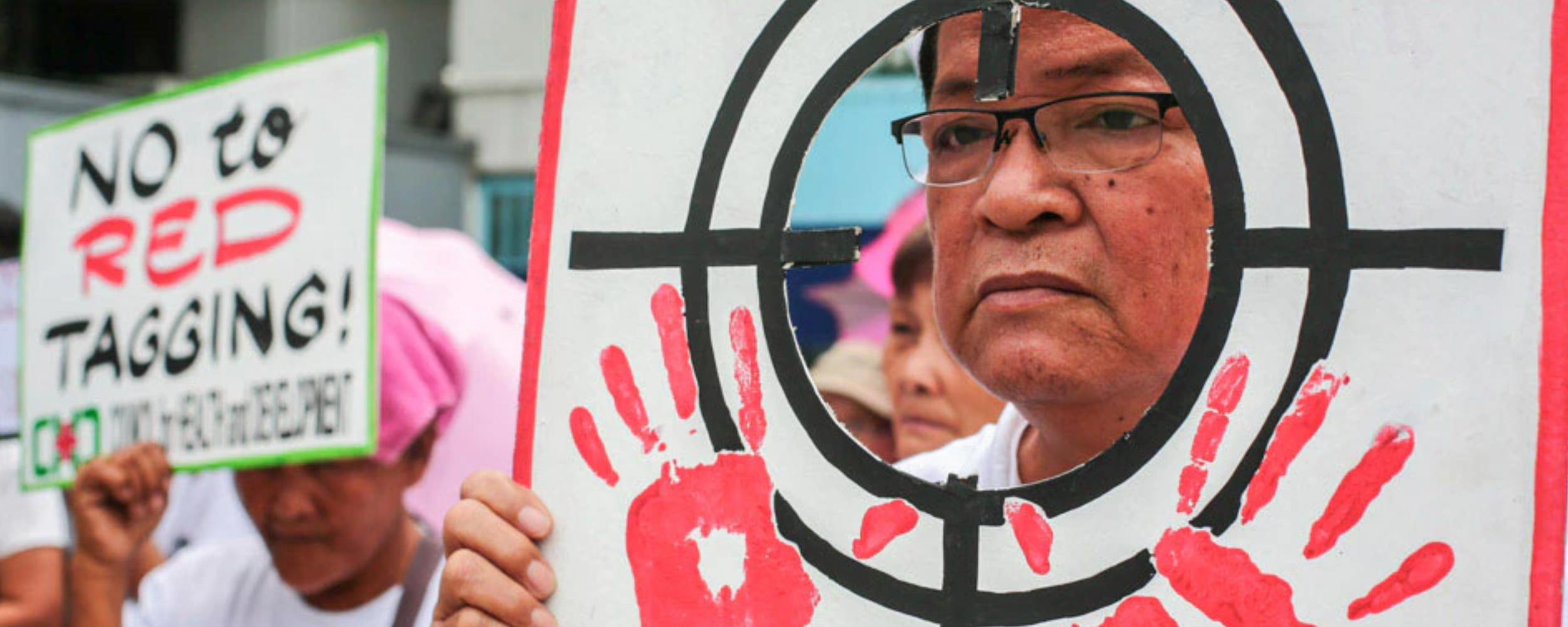

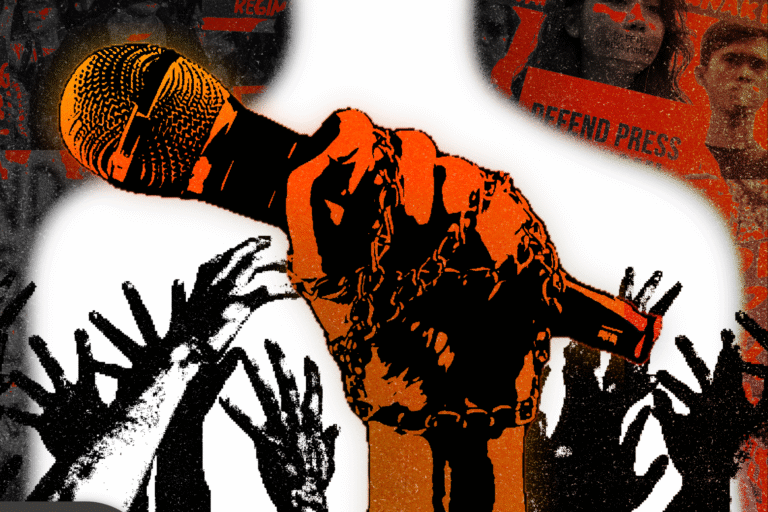
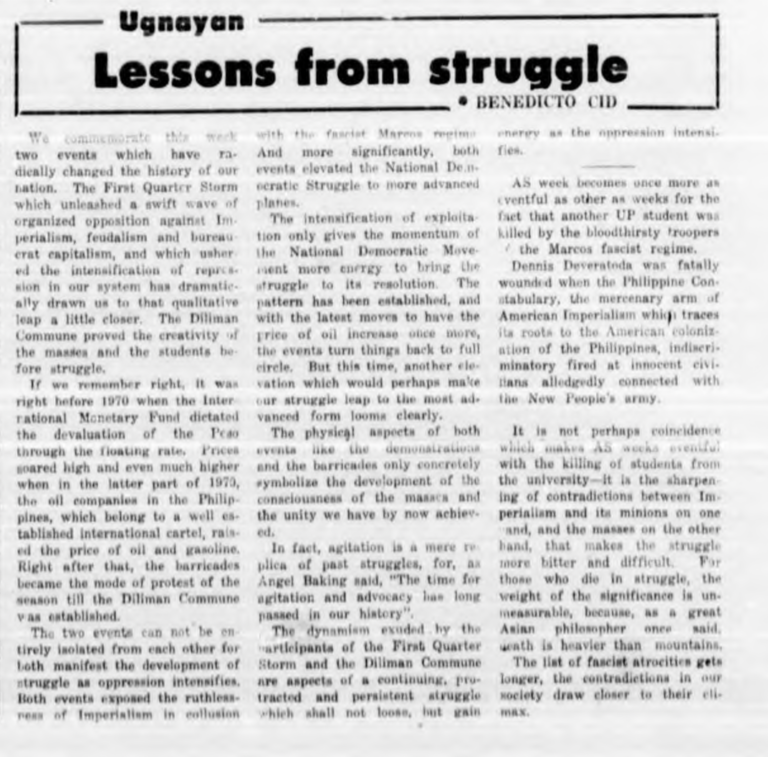
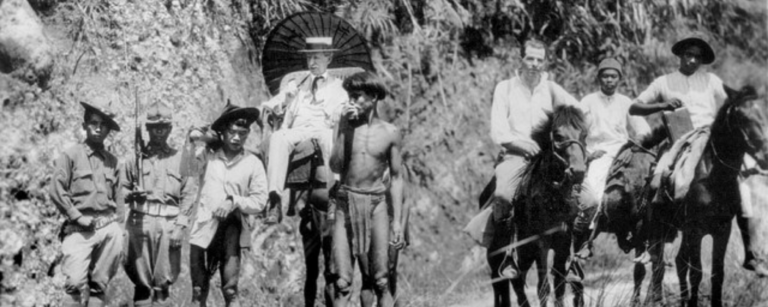

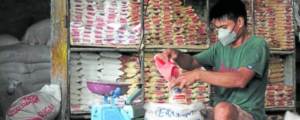
I want to thank you for your assistance and this post. It’s been great. http://www.ifashionstyles.com